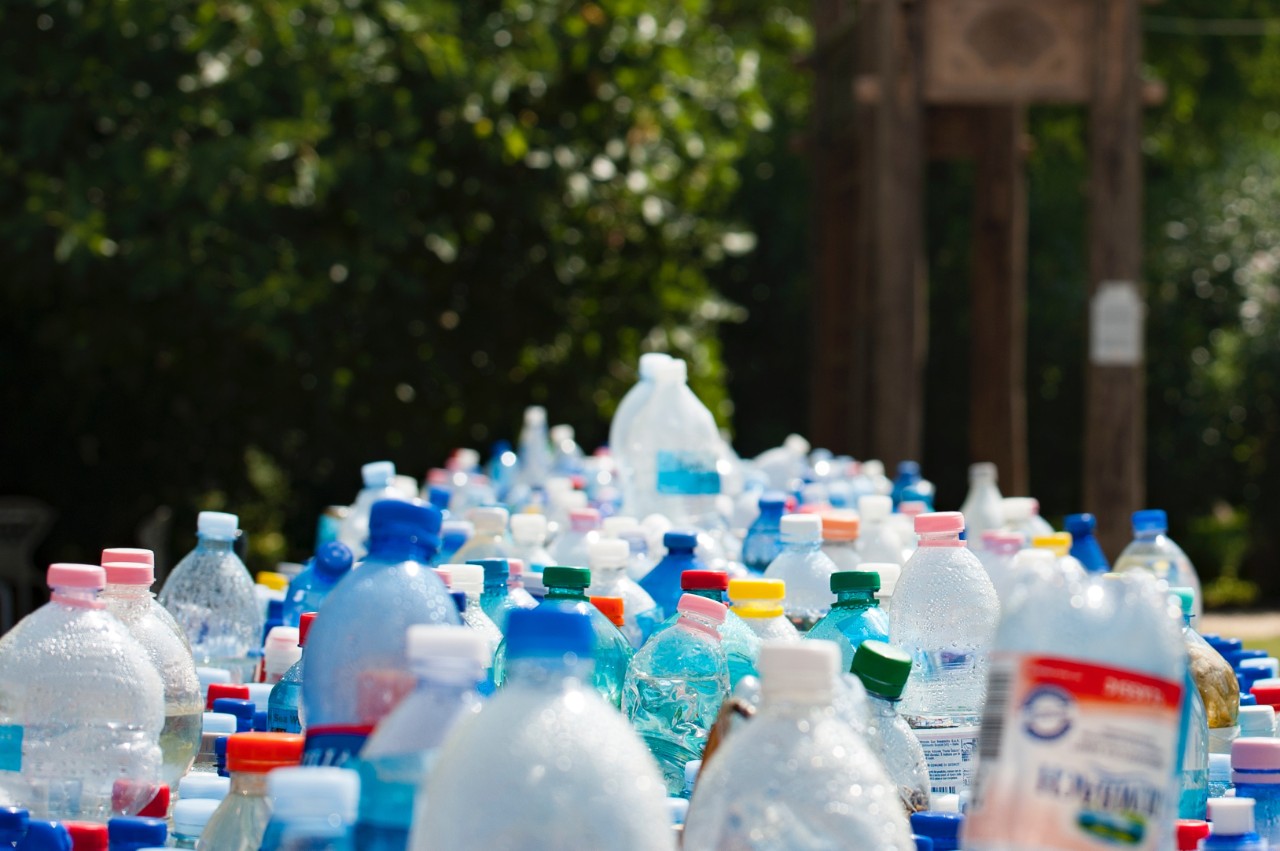
UC students present way to convert plastics to fuel
The United States recycles only 9 percent of its plastic. Everything else ends up in a landfill or the ocean. Students from the University of Cincinnati are trying to find a better place for all that plastic.
A team of UC chemical engineering students came up with a theoretical process that converts mixed-grade plastic to fuels such as diesel, gasoline and kerosene. They presented their work last week at UC's College of Engineering and Applied Science’s Senior Design Showcase and won the event’s Fan Favorite Award.
The students’ work reflect the innovation agenda platform of UC’s strategic direction, Next Lives Here.
The team wanted a process that could be universally applied to all plastic waste. They focused on mixed-grade plastic, which includes plastics like bags, water bottles and containers – just about all the plastic people use and throw out in the United States.

The team of UC chemical engineering students came up with a theoretical process that converts mixed-grade plastic to fuels like diesel, gasoline and kerosene. Image/Provided
"One of the big problems right now with recycling is it’s just very expensive, because you have to sort the plastic,” said Ryan Muir, a chemical engineering student on the team. “With this it’s not so important to do that.”
Instead of sorting the plastic, the team takes these different plastics and grinds them into flakes. The team feeds the plastic flakes into a heated reator with a catalyst that helps control the types of fuels that are made.
“You’re pretty much just taking the polycarbonate chains that are in plastics and breaking them down into smaller carbon chains like you would find in a crude oil,” said Muir.
The nice thing about this process is there’s hardly any waste. Everything we’re breaking down, we can sell.
Hannah Carson, UC chemical engineering student
The team then feeds this crude oil into several columns to separate it into different products. At the end, the team has five liquid fuels – diesel, lube oil, gasoline, kerosene and heavy residue – and one gas. The gas is recycled to heat the reactor and the process is repeated.
“The nice thing about this process is there’s hardly any waste,” said Hannah Carson, another chemical engineering student on the team. “Everything we’re breaking down, we can sell.”
The team proved that their process is commercially viable, with an estimated 11 percent return on investment. Companies typically like higher returns, but since it’s an environmental process, there’s some leeway.
The goal of the project, however, was more about increasing people’s understanding of recycling plastic than it was creating a process for market, said Muir
“There are other things you can do with plastics that we don’t think about. The whole project is building awareness for that and starting to think of new ways and new technologies for reusing plastic.”
Featured image at top: The United States recycles only 9 percent of its plastic. Everything else ends up in a landfill. Photo/Mali Maeder/Pexels

The team of UC chemical engineering students presents their poster. From left, Karen Hildebrant, Hao Tran, Rachel Hautman, Hannah Carson and Ryan Muir. Photo/Provided
Next Lives Here
The University of Cincinnati is classified as a Research 1 institution by the Carnegie Commission and is ranked in the National Science Foundation's Top-35 public research universities. UC's graduate students and faculty investigate problems and innovate solutions with real-world impact. Next Lives Here.
Related Stories
While working 3 a.m. shifts, UC engineer wowed baseball's Big 12
July 10, 2025
UC College of Engineering and Applied Science graduate Kerrington Cross was named an All-American and Big 12 Player of the Year while co-oping in chemical engineering at L'oreal.
There once was a biologist who talked to spiders …
July 9, 2025
UC biologist and spider expert Nathan Morehouse helped a writing collaboration at Kent University explore our common ground with these eight-legged creatures that fascinate us.
UC advances digital transformation in FY 2025
July 8, 2025
The latest University of Cincinnati Digital Technology Solutions (DTS) semiannual report highlights FY 2025 milestones on the university's digital transformation journey. From secure and compliant AI tools to wireless network improvements and everything in between, DTS remains committed to accelerating UC's shared Next Lives Here strategic direction from foundation to breakthrough.
